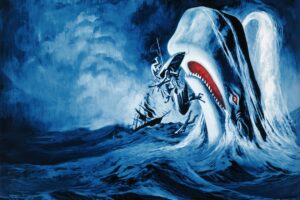From Melville’s ‘Moby-Dick’ to Beethoven’s ‘Fidelio,’ some great works of art have taken a long time to win recognition.
November 19, 2020
Failure hurts. Yet history, the ultimate judge, shows that today’s failure sometimes turns out to be tomorrow’s stroke of genius—even if it takes many tomorrows.
Take Ludwig van Beethoven’s opera “Fidelio,” which tells the story of Leonore, a young woman who disguises herself as a man to rescue her husband Florestan, a political prisoner marked for execution. The opera contains some of the most noble and inspiring Beethoven music ever wrote, but when it premiered in Vienna on Nov. 20, 1805, it was a fiasco.

PHOTO: ALAMY
The timing was terrible. The Austrian capital was practically deserted, having fallen to Napoleon’s army the week before. The audience was mainly comprised of French army officers, who showed little interest in an opera celebrating female heroism, conjugal love and freedom from tyranny. “Fidelio” had just three performances before it was pulled from the stage.
Crestfallen at the failure of his first (and only) attempt at opera, Beethoven set about revising and shortening the work. When “Fidelio” finally returned to the Vienna stage on May 23, 1814, it was a great success, though the composer’s increasing deafness affected his conducting, almost throwing the performance into chaos. The chorus master saved the day by keeping time behind him.
Beethoven was lucky that the Viennese finally appreciated the revolutionary nature of “Fidelio” in his own lifetime. The 19th-century Danish philosopher Soren Kierkegaard, by contrast, lived and died a national joke. The problem wasn’t so much his ideas about being and suffering, though these fell on deaf ears, but his character. Kierkegaard was a feud-mongering eccentric so derided in his native Copenhagen that people would tease him in the street.





